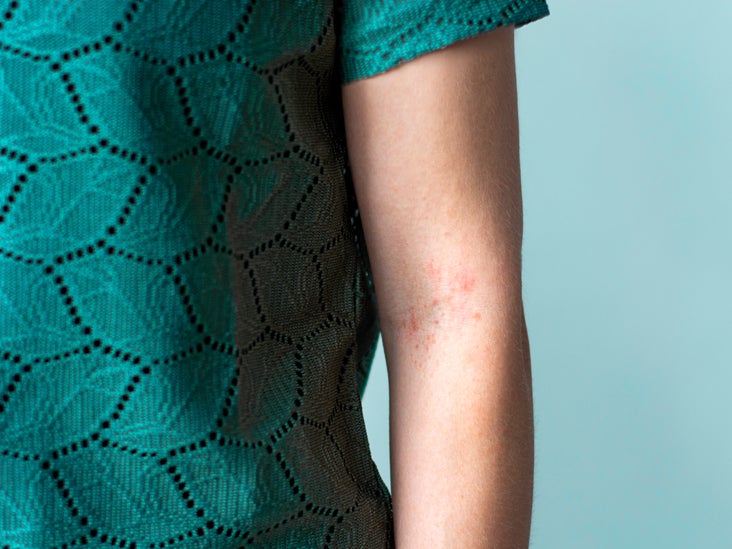Autoimmune Hives: Causes, Symptoms, Treatments, and More - Healthline

Hives are itchy red welts which can erupt without warning. They're rarely dangerous but can be uncomfortable, especially if they recur often. Hives that last for 6 weeks or longer are considered chronic. Some people may have hives for years.
It can be challenging to figure out what triggers these itchy occurrences, although allergens can sometimes be a cause. When the reason for hives remains unknown, they're said to be idiopathic. Around 30 to 40 percent of the time, idiopathic hives are triggered by the body's own immune system. These hives are autoimmune in nature and are known as autoimmune urticaria (hives).
Autoimmune hives erupt when the body's immune system is overactive and attacks the body's normal cells and tissues.
Autoimmune hives may be a stand-alone symptom with no obvious underlying cause. They may also occur in conjunction with diagnosable autoimmune conditions. It is possible to have more than one autoimmune condition at the same time.
Autoimmune thyroid diseases, such as Graves' disease and Hashimoto's thyroiditis can occasionally present concurrently with hives.
Other conditions which may be present in those with autoimmune hives include:
Autoimmune hives are red, itchy, raised bumps. They vary in size from pinhead dots to large swollen lumps.
You may see an eruption of one or two hives, or many hives that form a shapeless cluster or rash.
The root cause of hives can be challenging to diagnose. Your doctor may want to rule out allergens as a first cause. To do this, you may be asked to provide an extensive history of substances you have eaten or come into contact with. You may undergo allergy testing, such as scratch tests.
A health professional will also want to know of other symptoms you have to determine if you might have any other autoimmune conditions.
Specific tests for autoimmune hives include:
- Basophil histamine release assay: A blood test that measures the release of histamine from basophils, a type of white blood cell after exposure to stimuli.
- Autologous serum skin test: This test detects circulating autoantibodies released in response to histamine production. Blood is taken and left to clot outside the body for 30 minutes. Centrifugal force is then used to extract serum from blood. The serum is reinjected back into the body to see if hives form.
Treatment for hives can vary based on the cause and severity of symptoms.
Once hives have erupted, oral antihistamines such as diphenhydramine (Benadryl) can be effective for alleviating them quickly. Since diphenhydramine causes drowsiness and other side effects, it is not recommended for prophylactic use.
Non-drowsy antihistamines that block the release of histamine can prevent hives. They include:
- loratadine (Claritin, other brands)
- fexofenadine (Allegra, other brands)
- cetirizine (Zyrtec, other brands)
- desloratadine (Clarinex, other brands)
- levocetirizine (Xyzal)
Chronic hives that don't respond to over-the-counter antihistamines may be treated with prescription medications such as:
- omalizumab, an IgG monoclonal antibody
- cyclosporine
Before diving into any alternative therapy options, it's important to note that more research is necessary to determine if these treatments are effective.
Anecdotal evidence indicates that some people find symptom relief from autoimmune conditions by using the autoimmune protocol diet. But, since autoimmune hives are not specifically caused by what you eat, dieting may not be an effective strategy for treating them. One exception to this is celiac disease, which is exacerbated by ingesting gluten. Elimination diets, on the other hand, may be helpful for finding the cause of hives due to allergens in foods.
Acupuncture is an age-old practice which may have benefit for treating hives of all kinds, including autoimmune hives. Despite widespread use, there is not a large body of scientific evidence, published in English, that supports this practice. Even so, anecdotal evidence and some research indicates its effectiveness for this purpose.
Other alternative strategies include:
- reducing stress and fatigue
- applying calamine lotion directly to hives
- tepid showering
- keeping skin cool
- not wearing tight-fitting clothing
If you have hives that seem to erupt from a food, product, or medication, eliminate the substance immediately. Hives caused by allergies can sometimes be associated with a serious allergic reaction, such as anaphylactic shock.
If you have chronic hives that last for 6 weeks or more, see a medical professional. In some instances, hives may be a clue that you have an undiagnosed, treatable condition.
Autoimmune hives are caused by an overactive immune system that attacks healthy skin. This type of hives may be associated with an autoimmune condition, such as autoimmune thyroid disease.
Even though autoimmune hives are not caused by allergies, they often respond well to treatments used for allergic skin reactions, such as oral antihistamines. Autoimmune hives may also respond well to alternative treatments such as acupuncture.
Comments
Post a Comment